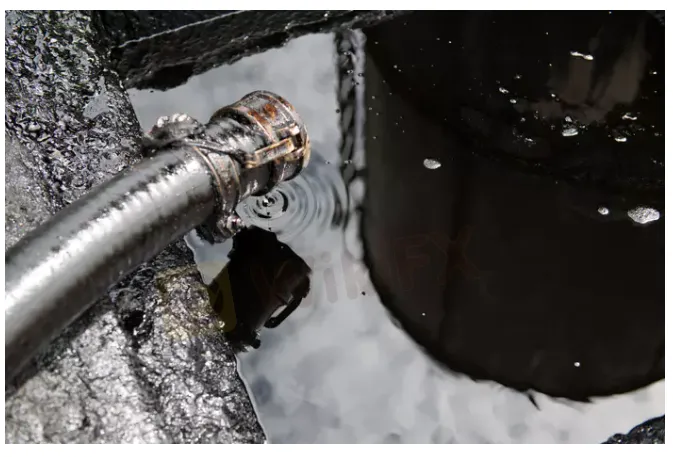简体中文
繁體中文
English
Pусский
日本語
ภาษาไทย
Tiếng Việt
Bahasa Indonesia
Español
हिन्दी
Filippiiniläinen
Français
Deutsch
Português
Türkçe
한국어
العربية
UK Hedge Funds and Putin Cashing in as World Shoots Itself in the Foot Over Oil
Abstract:It is almost as if either people never learn from history, or the prior generation did not pass their experience down to the current generation.

Those who remember the 1970s would be able to testify that unrelated foreign governments poking their paddle into political matters which they do not understand and are occurring thousands of miles from their comfortable offices often end up destroying the lives of their own citizens rather than resolving any turmoils that are none of their business.
The Yom Kippur War in the early 1970s which took place in the Middle East saw the United States take a side, and in doing so, the Arab League nations which at the time supplied the majority of oil to the United States decided to retaliate with a trade embargo.
The result was fuel rationing, very high prices for energy products and a 55mph speed limit.
Today, things are about to get much worse, for a far less severe period of political trouble.
It is now as though the current circumstance is set to break the banks of the populations of the European and American continent, whilst empowering Russia and its allies.
The mass withdrawal of large companies from key global markets has led to supply shortages and logistical issues.
It is important to look at the bear bones of each local economy and its structure. Most Western economies consist of tertiary services, and are net consumers, rather than producers, whereas Russia has a non-diversified, raw materials based economy and is a major supplier of oil and gas to the entire world.
Yesterday, the more astute observers from within the banking and electronic trading sector worked out very clearly that if Russia now sells just 30% of its annual production of natural gas and oil, its energy producing industry, which is the largest in the world, would make 100% of the revenues that it would have done if it had sold 100% of its annual production before all these sanctions were imposed.
In simple terms, that means that Russia can now sell a third of its gas and oil for the price it would have got for all of it.
Whos the real winner here? Not the consumer. Many residents of the UK will soon line up to fill their car with fuel for £250 per tank, or work out how to heat their home without being faced with a bill of £1000 per month. This therefore has created an inflationary market.
Looking at it this way, it is the western nations that have turned on their own people and have been doing so for two years now.
Gas prices in the UK alone have gone from an average 55p per therm to 700p per therm for many domestic households.
Hedge fund manager Crispin Odey, a renowned investor who has mastered volatile markets before, has made a 30% increase in his returns over the past two weeks as a result of the market turmoil.
Mr Odey quite rightly said that the UK is in just the early days of an ‘energy crisis’ and that prices will climb further and plunge the Western world into a deep recession.
This is the next stage in the agenda following the lockdowns of 2020 and 2021.
We all saw the G7 leaders meeting last year in Glasgow all in the name of the ‘climate’, and the ESG roll-out begin among many firms.
Oil and gas are certainly commodities that are in higher use than ever, and in India and China, they are being imported and consumed at a rate so high that the black stuff cannot be refined quickly enough to get it to its customers. In India and China, it is business as usual.
Russian oil giants will simply sell their now very expensive oil to China and India, both of which will continue to manufacture, develop, and operate their enormous economies with gusto.
Oil and gas, therefore, are the commodities to watch. Things that are considered ‘naughty pleasures’ are often highly prized.

Disclaimer:
The views in this article only represent the author's personal views, and do not constitute investment advice on this platform. This platform does not guarantee the accuracy, completeness and timeliness of the information in the article, and will not be liable for any loss caused by the use of or reliance on the information in the article.
Read more

The Hidden Checklist: Five Unconventional Steps to Vet Your Broker
Forex broker scams continue to evolve, employing new tactics to appear credible and mislead unsuspecting traders. Identifying these fraudulent schemes requires vigilance and strategies beyond the usual advice. Here are five effective methods to help traders assess the legitimacy of a forex broker and avoid potential pitfalls.

Doo Financial Obtains Licenses in BVI and Cayman Islands
Doo Financial, a subsidiary of Singapore-based Doo Group, has expanded its regulatory footprint by securing new offshore licenses from the British Virgin Islands Financial Services Commission (BVI FSC) and the Cayman Islands Monetary Authority (CIMA).

CFI’s New Initiative Aims to Promote Transparency in Trading
A new programme has been launched by CFI to address the growing need for transparency and awareness in online trading. Named “Trading Transparency+: Empowering Awareness and Clarity in Trading,” the initiative seeks to combat misinformation and equip individuals with resources to evaluate whether trading aligns with their financial goals and circumstances.

Malaysian-Thai Fraud Syndicate Dismantled, Millions in Losses Reported
The Royal Malaysia Police (PDRM) has received 26 reports concerning the Nicshare and CommonApps investment schemes, both linked to a major fraudulent syndicate led by a Malaysian citizen. The syndicate’s activities came to light following the arrest of its leader by Thai authorities on 16 December.
WikiFX Broker
Latest News
ASIC Sues Binance Australia Derivatives for Misclassifying Retail Clients
WikiFX Review: Is FxPro Reliable?
Malaysian-Thai Fraud Syndicate Dismantled, Millions in Losses Reported
Trading frauds topped the list of scams in India- Report Reveals
AIMS Broker Review
The Hidden Checklist: Five Unconventional Steps to Vet Your Broker
YAMARKETS' Jingle Bells Christmas Offer!
WikiFX Review: Something You Need to Know About Markets4you
Revolut Leads UK Neobanks in the Digital Banking Revolution
Fusion Markets: Safe Choice or Scam to Avoid?
Currency Calculator


